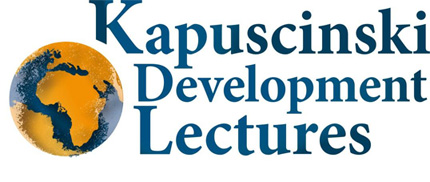INVITATION: UNDP EC KAPUSCINSKI DEVELOPMENT LECTURE
November 2014

Climate Justice: Distant Strangers and the Illusion of Separation
Delivered by
Henry Shue
Senior Research Fellow at the Centre for International Studies of the Department of Politics and International Relations of the University of Oxford ; Professor Emeritus of International Relations, Oxford, and Emeritus Fellow of Merton College, Oxford; and member of the High Level Advisory Committee for the Climate Justice Dialogue initiated by the Mary Robinson Foundation – Climate Justice and the World Resources Institute
Thursday, 4th December, 2014
4:00pm
Trinity College Dublin, Science Gallery
Webcasted LIVE at 4:00 GMT / 5:00 CET on 4th December, 2014
For more information and to RSVP by 1 December please contact:
http://kapuscinskilectures.eu/lectures/climate-justice-illusion-of-separation/
This event is organised by the Joint TCD UCD Masters in Development Practice, the Sustainable Development Solutions Academic Centre, the European Commission and the United Nations Development Programme (UNDP)
Lecture Abstract:
Sanity requires an understanding of limits on one’s sense of responsibility. A person who felt responsibility toward everyone would be driven into distraction, if not madness, by the accompanying relentless urge to act. But we are very good - much too good, actually - at washing our hands of what we take to be other people’s problems. The better-off have always managed to live on the other side of town from the poorer so that their poverty is mostly out of sight and out of mind. Yet some line must be drawn somewhere between ‘my problem’ and ‘not my problem’. In more philosophical language, we need an adequate conception of responsibility - and its defining limits. Nothing has been specified until its limits have been drawn. What am I responsible for?
The effects of our carbon emissions on the poor in developing nations are invisible to us. Carbon dioxide itself is invisible, and it accumulates incrementally. But these may not be the main reasons why its effects escape us. In an important 1995 article Samuel Scheffler suggested that our existing conception of responsibility rests in part on what he called “a complex phenomenology of agency”: a complicated set of assumptions about what matters about what we do and do not do. Specifically, he saw that among the concepts deeply ingrained in our understanding of the world are the following two assumptions: the near effects of our acts are more important than the remote effects, and the effects we produce as individuals are more important than the effects we produce as members of a group. This lecture will explore the extent to which these tacit assumptions highlighted by Scheffler are part of the explanation of our failure to appreciate the significance of climate change for developing nations. To the extent to which they are, our ordinary conception of responsibility seems to need to be revised for life in the Anthropocene, the age in which the collective effects of human actions have devastating effects on distant strangers remote from the agents. Can it be revised? If so, how? We will make a start.

